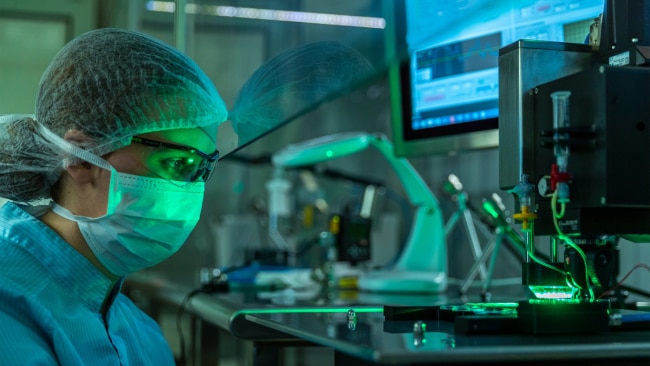Doctors' advice the reason for soaring rates of C-sections
ROCKETING rates of caesarean section deliveries are being driven by doctors, not women "too posh to push".

ROCKETING rates of caesarean section deliveries are being driven by doctors, not women "too posh to push", according to a study that will fire up debate on what's best in child birth.
The survey of 22,000 mothers in Queensland purports to explode the "myth" that women opt for a C-section to avoid the rigours of natural childbirth, or out of convenience. Rather than being "too posh to push", most women having a caesarean were acting on the advice of their doctor, often without understanding the full ramifications of the surgery. Only 52 per cent of those who elected to have a C-section made the decision in an informed way, the survey by the University of Queensland's Centre for Mothers and Babies found.
In the case of women who underwent the procedure in unplanned or emergency circumstances, informed decision-making dropped to 20 per cent.
Over all, the caesarean rate has increased by 74 per cent in Australia over the past 20 years and in Queensland, where it is highest, C-sections account for a third of all births. Just on 48 per cent of babies delivered in private hospitals in Queensland are by caesarean section, against 27.8 per cent for public hospitals.
"When it comes to caesarean sections, our research shows the increase seems to be largely driven by the recommendations of doctors, particularly in private hospitals," QCMB director Sue Kruske said.
"This would indicate the notion that women are choosing to have a caesarean because they are 'too posh to push' is incorrect."
Royal Australian and New Zealand College of Obstetricians and Gynaecologists president Rupert Sherwood agreed the "too posh to push" argument was overblown. In his experience, fewer than 5 per cent of C-sections were performed on women with no medical indications for the surgery.
Dr Sherwood attributed the rising caesarean rate to factors such as women having children later and increased obesity -- both of which compounded the risk of natural delivery -- and to wider choices in how to give birth.
He disputed that doctors were pushing women into the surgery. "If the survey is suggesting that people are being told what to do against their wishes or without being adequately informed, I would refute that," he said.
Professor Kruske, a former midwife, said the "threshold" doctors used to recommend a caesarean was too low, especially for first-time mothers.
Too often, women did not understand that the operation increased the risk of future births by C-section, she said, especially from a complication known as placenta accreta. This could result in lethal tearing of the uterus.
Professor Kruske said one consideration for doctors in advocating a caesarean delivery was "fear of litigation".
"The common quote given is that doctors say they have never been sued for doing a caesarean section," she said.
Heavily-pregnant Katrin Cimienga, a 36-year-old teacher from North Bondi, Sydney, said she gave birth naturally to her first daughter, Hannah, three years ago and hoped to do so again when the time came in about 10 weeks to have her second baby. She had no problem with women choosing to have a C-section. "Having caesarean sections is a reflection of our time -- we like to plan things ahead," she said.
Rose Bay resident Annie Medniuk, 3,2 and 18 weeks' pregnant, said having a caesarean had not crossed her mind. "It's never come up in conversations with obstetricians at all," she said. "I was never even asked that."


